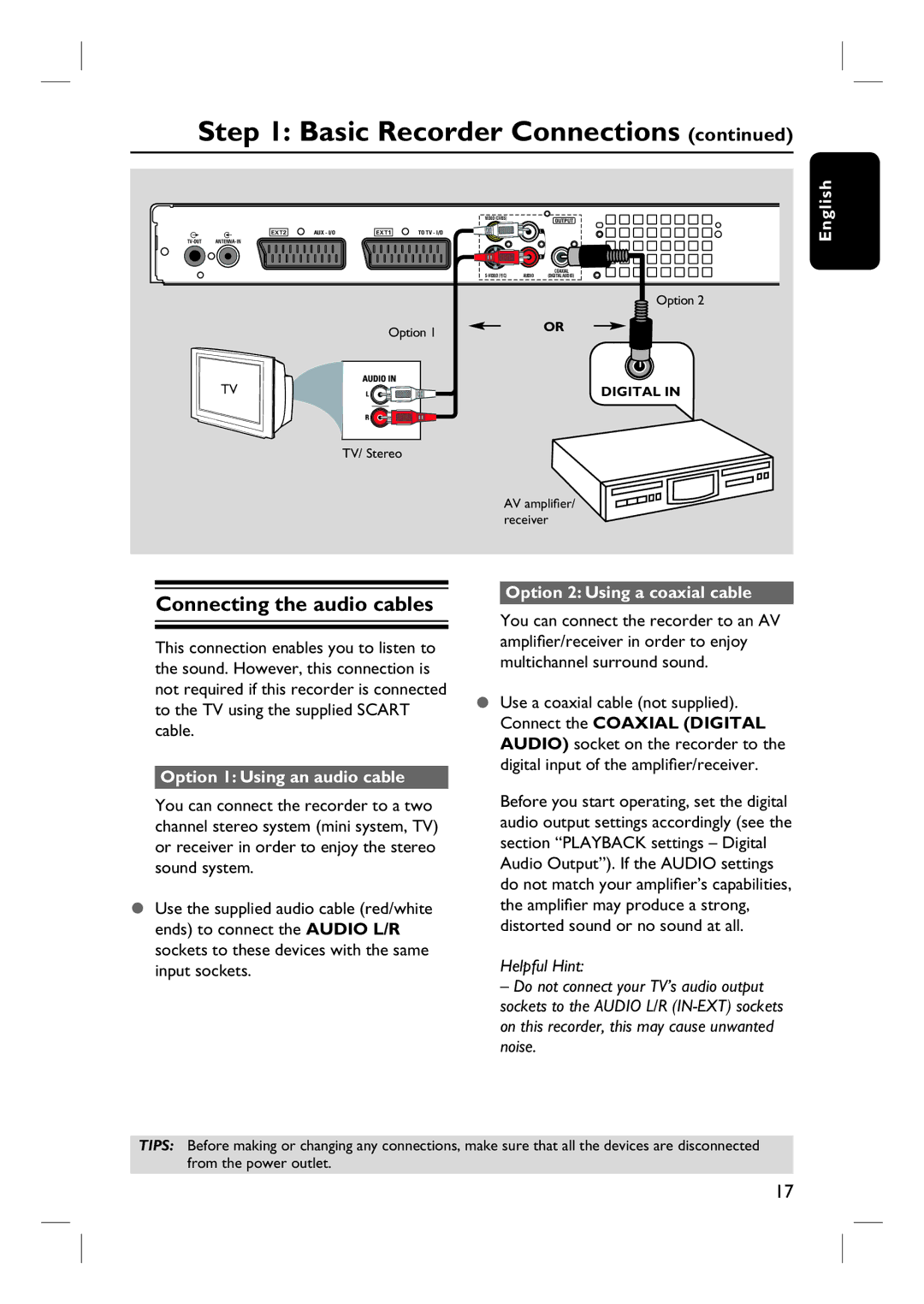
Step 1: Basic Recorder Connections (continued)
VIDEO (CVBS) | OUTPUT |
|
EXT2 | AUX - I/O | EXT1 | TO TV - I/O | L |
|
|
|
| |
|
|
|
| R |
|
|
| COAXIAL | |
|
|
| AUDIO (DIGITAL AUDIO) | |
|
|
|
| Option 2 |
|
| Option 1 | OR | |
|
|
| ||
TV | DIGITAL IN |
TV/ Stereo
AV amplifier/ receiver
English
Connecting the audio cables
This connection enables you to listen to the sound. However, this connection is not required if this recorder is connected to the TV using the supplied SCART cable.
Option 1: Using an audio cable
You can connect the recorder to a two channel stereo system (mini system, TV) or receiver in order to enjoy the stereo sound system.
Use the supplied audio cable (red/white ends) to connect the AUDIO L/R sockets to these devices with the same input sockets.
Option 2: Using a coaxial cable
You can connect the recorder to an AV amplifier/receiver in order to enjoy multichannel surround sound.
Use a coaxial cable (not supplied). Connect the COAXIAL (DIGITAL AUDIO) socket on the recorder to the digital input of the amplifier/receiver.
Before you start operating, set the digital audio output settings accordingly (see the section “PLAYBACK settings – Digital Audio Output”). If the AUDIO settings do not match your amplifier’s capabilities, the amplifier may produce a strong, distorted sound or no sound at all.
Helpful Hint:
–Do not connect your TV’s audio output sockets to the AUDIO L/R
TIPS: Before making or changing any connections, make sure that all the devices are disconnected from the power outlet.
17
